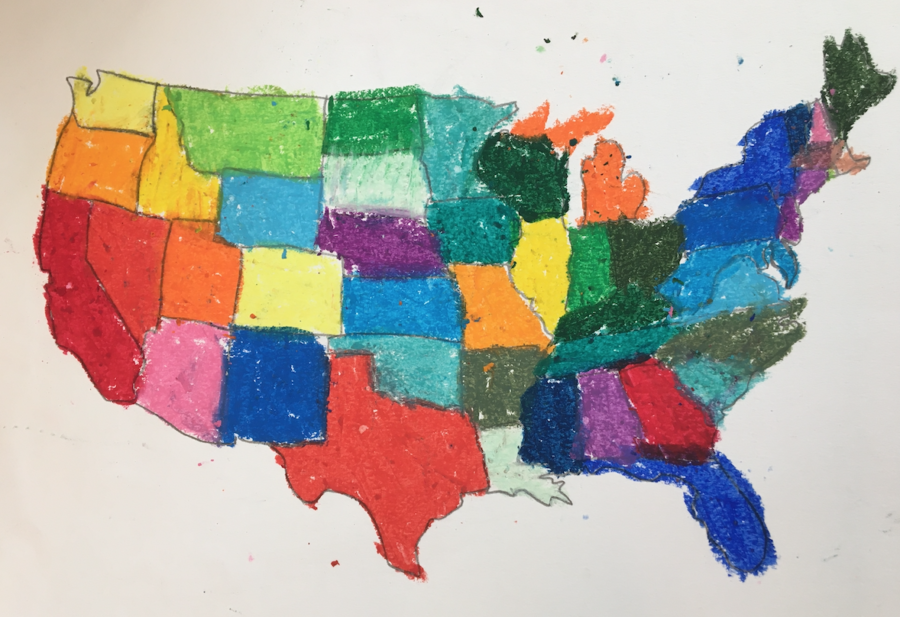Inducing isolationism and xenophobia: the effects of nationalism worldwide
Around the world, nationalism is currently on the rise. President Trump is a self-proclaimed nationalist. Brexit, in the United Kingdom, is often attributed to nationalistic ideals. But what is nationalism? What do its different interpretations look like? Where is the future of nationalism headed?
While deconstructing nationalism, it is essential to consider the historical context and weight that the word carries. “I think we are seeing the breakdown of a world after World War II and in which entities like the United Nations and the World Trade Organization were creating a more globalized world,” said Brooke Roberts, a history teacher at Urban. “[But] globalization did not work for many people and what we’re seeing now is a new era in saying that we don’t want to be a part of that anymore.”
After World War II, the meaning of nationalism shifted significantly. When used vaguely, it is often for the advancement of an anti-immigrant agenda. “I think nationalism right now [is] a euphemism to say that the only way to love a country is to hate groups of people who may actually have a long history on the land we call our country,” Charisse Wu, Urban 11th and 12th-grade dean and history teacher said. “In my eyes, that nationalism is clearly fabricated, it’s ahistorical and it’s based on fear-mongering and fear of the other.”
Wu shared some of the specific implications that are associated with the word “nationalism”. Wu said, “[when I think about how] the nationalism movement in China emerged, it was around anti-imperialism. I think about black nationalism as a movement of racial uplift that has a long history. And then, of course, I think about right-wing nationalism that has an intense strain of xenophobia and obsession with the maintaining of borders.”
It is critical to remember the detrimental effects that nationalism can have on peoples’ lives in order to prevent repeating mistakes from the past. Wu shared a personal story of how her grandfather was affected by policies that adapted nationalist rhetoric for the benefit of the privileged. “I’m the first generation of my family born in this country. My father’s grandfather was here in New York, he had a laundromat in Chinatown in New York City. He was here. And because of xenophobic, racist immigration policies spearheaded by people in California against the Chinese, multiple generations of my family were not able to start families here in this country,” Wu said. “I don’t believe exclusion defines nationalism and patriotism. I think you have to call that what that is, which is racist fear-mongering.” Wu’s story shows that people in power can manipulate the meaning of nationalism so that they can discriminate against people of color.
Rebecca Stirn is the Area Coordinator for an organization called Creating Friendships for Peace (CFP). According to its website, CFP’s mission is to “promote and strengthen friendships between teens from divided communities.” In an interview with the Urban Legend, Stirn shared her perspective on the organization’s work. Stirn said, “Part of what we do is to help them hear each other’s stories. And when they realize that in fact both sides were victims and both sides were perpetrators then they can start to warm up to each other and begin to build some trust.”
Barbara Geberoff, a volunteer at CFP spoke to how she sees the detriments of nationalism today in her work with children from the divided country of Cyprus. Geberoff said, “A lot of kids in the high school … [called their peers] fascists as people who are ultra-nationalist. There’s some animosity as well, the kids were talking about how scary it is to live with that and how concerned they were on how to handle it.” Through her volunteer work, Geberoff was able to see first hand how the polarizing “us versus them” debate characterizes nationalism and always ends up with the divisions of people.
What is especially difficult about a global increase in nationalism is that it prohibits countries from banding together to work on some of the largest issues of our time. Wu said, “It’s very difficult to address huge issues like the climate crisis, mass incarceration, our poverty and wealth disparity and questions like who do we invest in? Do we invest in equal pay? Do we invest in maternal health? When the conversations we have to engage in become politically polarized to fight over ‘Are you in this group are you out of this group? Are you for this country or are you against this country?’ Those are far too blunt of instruments to operate on the problems we’ve got.”

